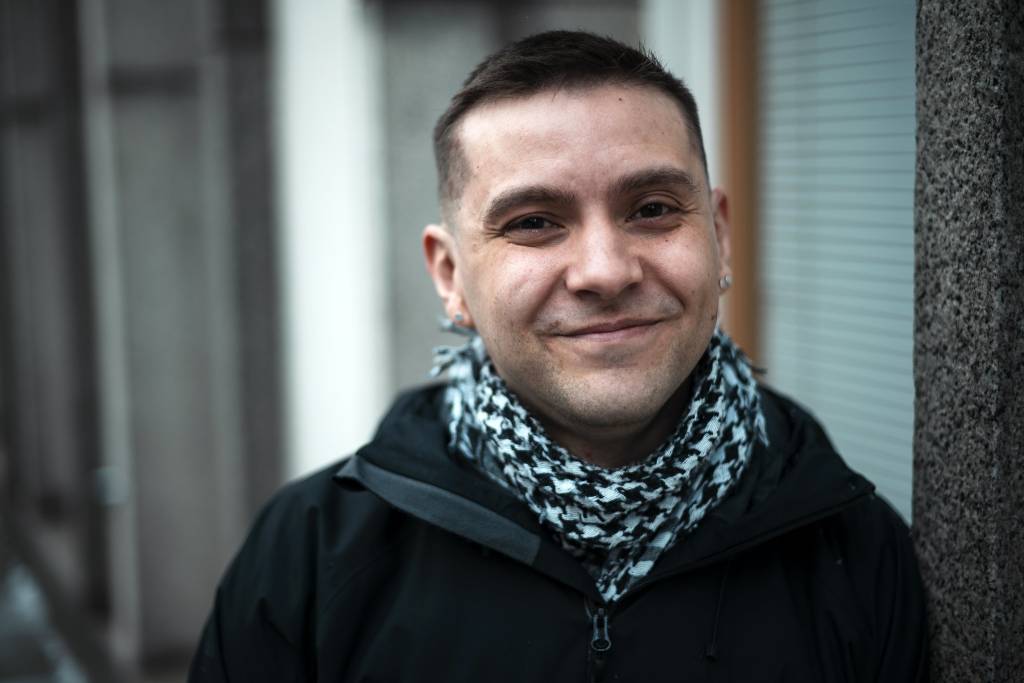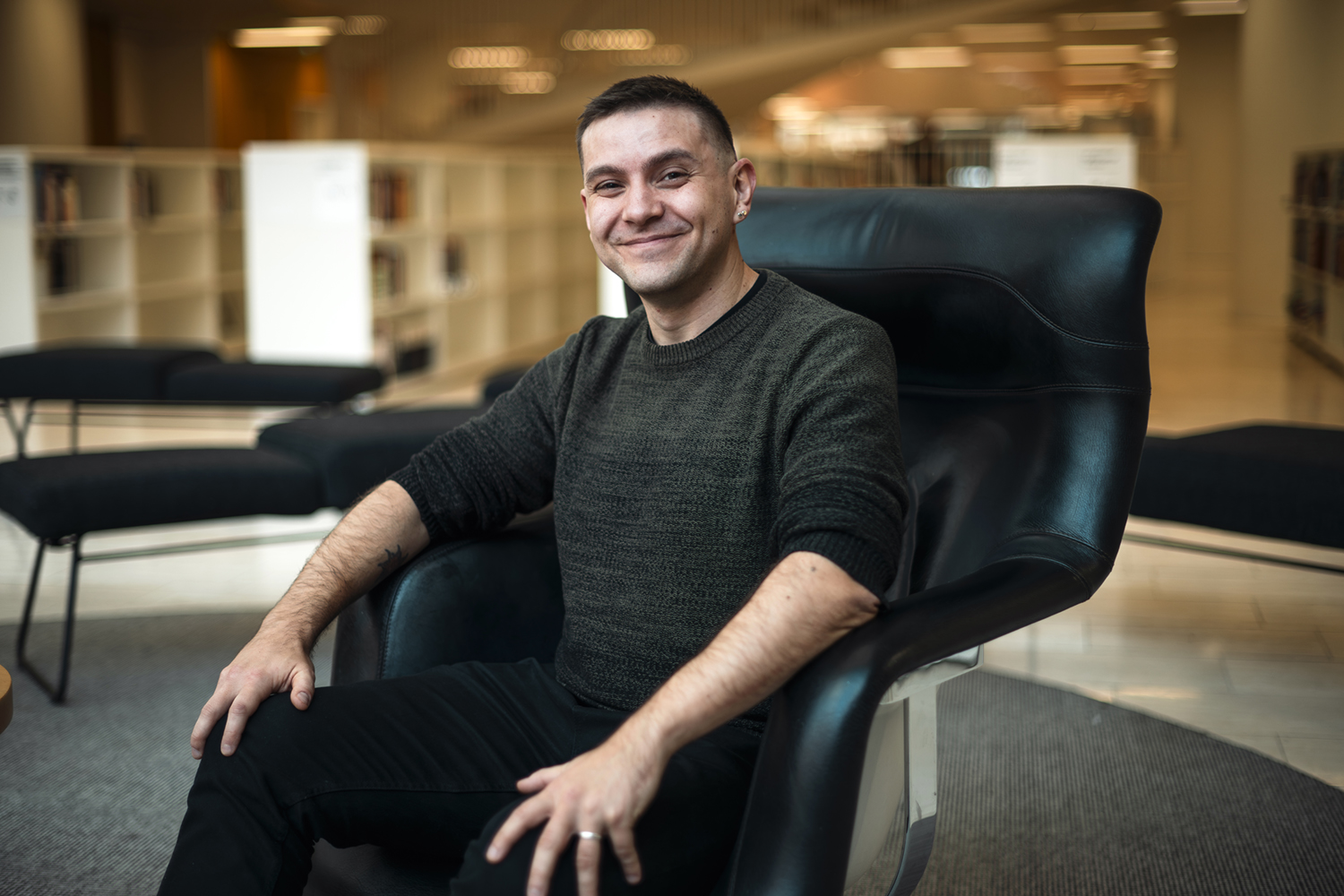42-year-old Mikko Meriläinen has studied games and gaming virtually throughout his academic career. In his research, he has observed that male gamers are rarely identified as male.
– Instead, they are seen as neutral gamers, genderless characters. There are gamers, and then there are female gamers, he says.
In 2024, Meriläinen received a five-year research grant from the Research Council of Finland for his study titled “Beyond hegemony: Rethinking men and masculinities in game culture”.
Meriläinen is keen to examine how men experience, negotiate and subvert normative expectations of masculinity and express agency as they participate in gaming cultures.
Before shifting this focus to game studies, Meriläinen was working on a master’s thesis in education. During this time, he went through a personal struggle, questioning whether a traditional teaching career was the right choice for him after all.
– I had been working as a teacher for quite some time by then. Suddenly, I felt that I could not do it anymore, Meriläinen recalls.
He was close to stopping at a bachelor’s degree and doing something completely different when a friend suggested he write his master’s thesis on a gaming-related topic.
Meriläinen started playing traditional role-playing board games with his older brothers at the age of 5, a hobby he has continued to this day. He found that completing a master’s thesis on role-playing games was so inspirational that he ended up applying for a doctoral programme.
– I had so much fun writing my master’s thesis that I wanted to delve even deeper into the study of games.
In his free time, Meriläinen prefers to play long, story-driven role-playing and adventure games. He also likes to play turn-based building games or other relaxing games with his spouse.
– I thoroughly enjoy getting lost in a different world and story. It provides a perfect escape from work and helps me unwind from daily pressures.
Meriläinen’s journey to completing his PhD was far from straightforward. Initially, he struggled to secure research funding, a common hurdle for many doctoral researchers. He spent a couple of years working in the non-profit sector, addressing the negative effects of gaming among young people, before returning to work on his PhD thesis for a few years while receiving earnings-related unemployment allowance.
In 2018, Meriläinen was hired to join the Growing Mind research hub at Tampere University. The hub’s eponymous research project needed an education specialist with a solid understanding of gaming.
– The position was tailor-made for me and marked the beginning of my full-time employment at Tampere University, Meriläinen says.
When talking with young people, Meriläinen always reminds them that careers can take many twists and turns, and one can never know what will happen in life.
– After finishing upper secondary school, I originally started studying to become a chef but dropped out after six months. A culinary school drop-out ended up pursuing an academic career, he reflects.
Meriläinen’s current study bridges game studies and gender studies, a perspective that piqued his interest following his extensive research on gaming from a youth perspective. He noted that game studies tend to highlight the role of boys and men, for understandable reasons.
– Boys and men are overrepresented in game research because they typically spend more time playing games, Meriläinen says.
Meriläinen also observed that men and masculinity are frequently studied from a non-male perspective.
The responsibility for overcoming male dominance in gaming culture seems to fall on women, who are already at a disadvantage in this environment, Meriläinen finds. Studies often examine men’s disruptive behaviour in game environments and how the male hegemony in gaming cultures is perceived by others than men.
– Researchers who study discrimination against their own reference group face a whole new level of stress and emotional labour.
Meriläinen identifies as a middle-aged, middle-class male feminist and hopes to be in a position to promote a more inclusive and welcoming gaming culture. That is the ultimate goal of his research.

In his current study, Meriläinen aims to conduct an extensive review of men’s roles as gamers through qualitative questionnaires and interviews. He seeks to provide a comprehensive overview of diverse male experiences and interview gamers from various demographics, including majority groups, gamers with an immigrant background, and sexual and gender minorities.
In addition, he hopes to find gamers who hold strong opinions on some of the current trends within gaming culture, such as those who believe feminism has negatively impacted gaming. This mindset is quite prevalent on online discussion boards.
– I find that these perspectives are worth highlighting and investigating to shed light on their origins and explore how experiences of anger and anxiety are connected to gender.
Meriläinen aims to highlight diverse perspectives and conduct research that genuinely reflects this diversity, rather than offering insipid platitudes. He seeks to uncover a variety of experiences related to maleness, gaming cultures and their intersections.
– On the other hand, I also want to highlight that we people are rarely only good or bad, but rather a mix of internal inconsistencies and incoherencies, with different views on different topics.
Author: Anette Partonen
Photos: Antti Yrjönen

